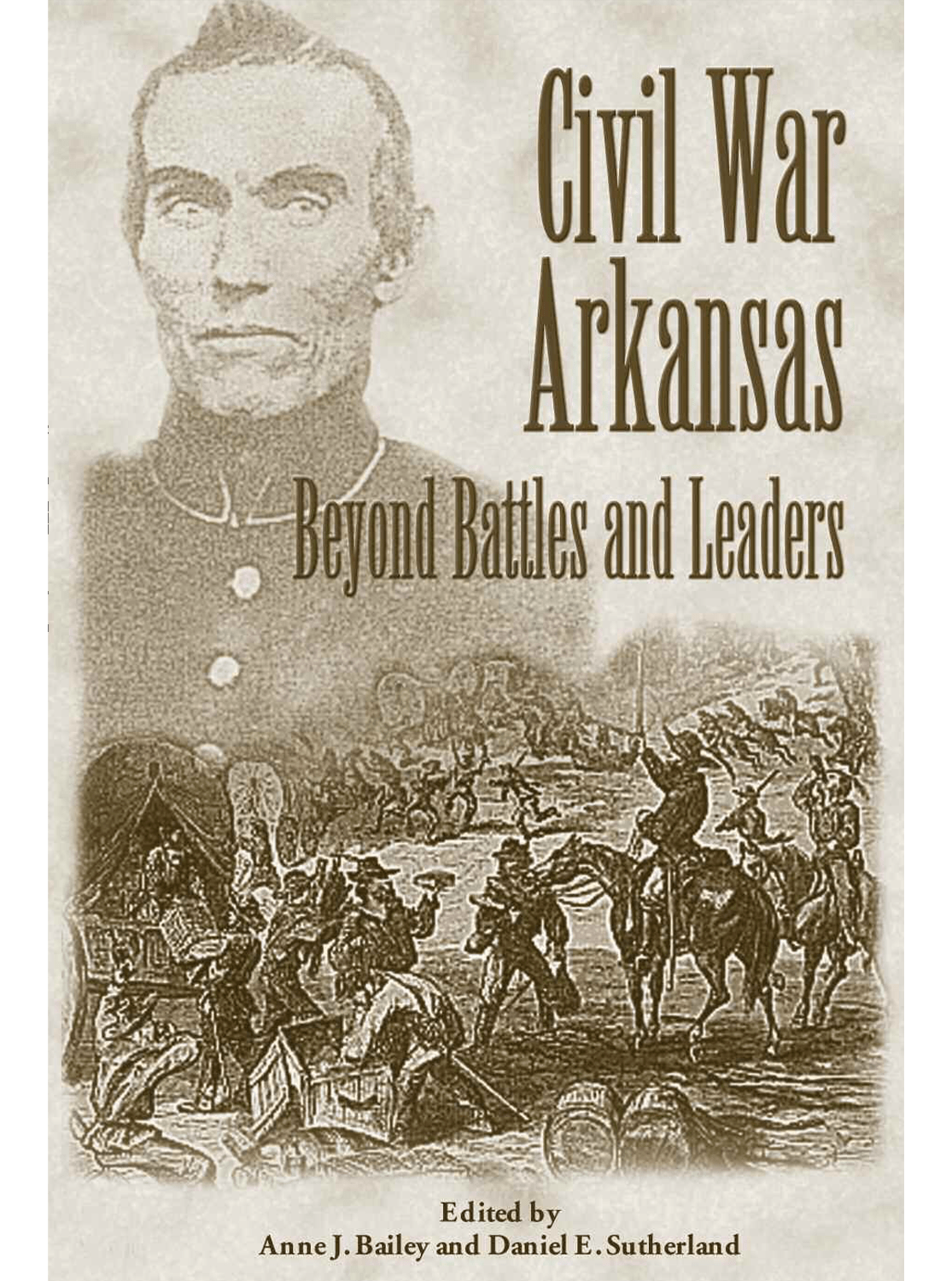This collection of essays represents the best recent history written on Civil War activity in Arkansas. It illuminates the complexity of such issues as guerrilla warfare, Union army policies, and the struggles between white and black civilians and soldiers, and also shows that the war years were a time of great change and personal conflict for the citizens of the state, despite the absence of “great” battles or armies.
All the essays, which have been previously published in scholarly journals, have been revised to reflect recent scholarship in the field. Each selection explores a military or social dimension of the war that has been largely ignored or which is unique to the war in Arkansas—gristmill destruction, military farm colonies, nitre mining operations, mountain clan skirmishes, federal plantation experiments, and racial atrocities and reprisals. Together, the essays provoke thought on the character and cost of the war away from the great battlefields and suggest the pervasive change wrought by its destructiveness.
In the cogent introduction Daniel E. Sutherland and Anne J. Bailey set the historiographic record of the Civil War in Arkansas, tracing a line from the first writings through later publications to our current understanding. As a volume in The Civil War in the West series, Civil War Arkansas elucidates little-known but significant aspects of the war, encouraging new perspectives on them and focusing on the less studied western theater. As such, it will inform and challenge both students and teachers of the American Civil War.
Anne J. Bailey has written four books, including The Chessboard of War: Sherman and Hood in the Autumn Campaigns of 1864 and Portraits of Conflict: A Photographic History of Georgia in the Civil War. Currently serving as editor of the Society of Civil War Historians Newsletter and coeditor of the Great Campaigns of the Civil War series at The University of Nebraska Press, Dr. Bailey teaches in the department of history and geography at Georgia College & State University in Milledgeville.
A professor of history at the University of Arkansas and a nationally renowned Civil War scholar, Daniel E. Sutherland has previously published nine books, including Fredericksburg and Chancellorsville and Seasons of War for which he received both the Douglas Southall Freeman Award and the Laney Award.
“The Civil War in the West has a single goal: to promote historical writing about the war in the western states and territories. It focuses most particularly on the Trans-Mississippi theater, which consisted of Missouri, Arkansas, Texas, most of Louisiana (west of the Mississippi River), Indian Territory (modern day Oklahoma), and Arizona Territory (two-fifths of modern day Arizona and New Mexico) but encompasses adjacent states, such as Kansas, Tennessee, and Mississippi, that directly influenced the Trans-Mississippi war. It is a wide swath, to be sure, but one too often ignored by historians and, consequently, too little understood and appreciated.
Topically, the series embraces all aspects of the wartime story. Military history in its many guises, from the strategies of generals to the daily lives of common soldiers, forms an important part of that story, but so, too, do the numerous and complex political, economic, social, and diplomatic dimensions of the war. The series also provides a variety of perspectives on these topics. Most importantly, it offers the best in modern scholarship, with thoughtful, challenging monographs.
Secondly, it presents new editions of important books that have gone out of print. And thirdly, it premieres expertly edited correspondence, diaries, reminiscences, and other writings by participants in the war.
It is a formidable challenge, but by focusing on some of the least familiar dimensions of the conflict, The Civil War in the West significantly broadens our understanding of the nation’s most pivotal and dramatic story.”
—Daniel Sutherland, from the preface of I Do Wish This Cruel War Was Over
“Whether an examination of the guerrilla war that swept the state or the controversy surrounding the deaths of African American soldiers at the Battle of Poison Spring, these essays expose the reader to the unique nature of the Civil War in Arkansas.”
—Don Montgomery, Civil War History, December 2000
“This well-crafted volume, part of a series on the Civil War in the West, is essential reading for anyone interested in a fuller understanding of this tragic era in Arkansas history.”
—Thomas A. DeBlack, Arkansas Historical Quarterly, Summer 2001

